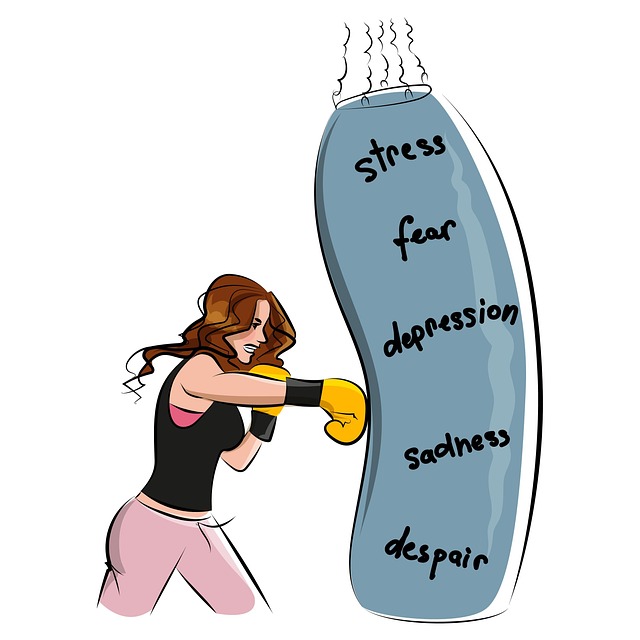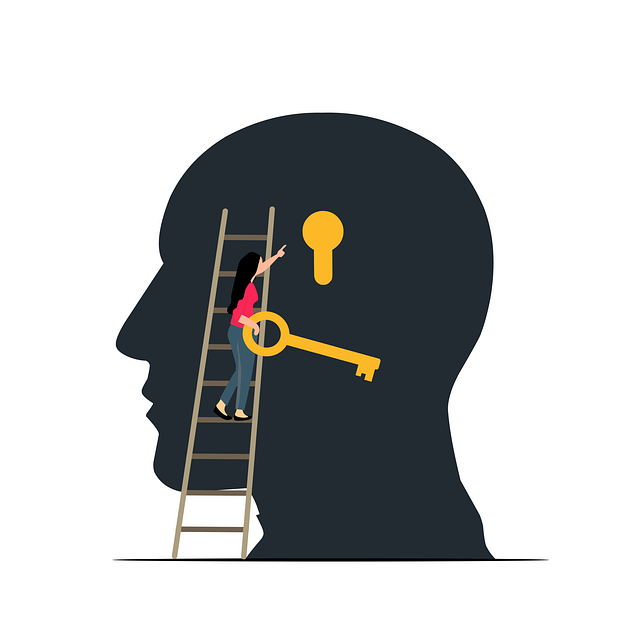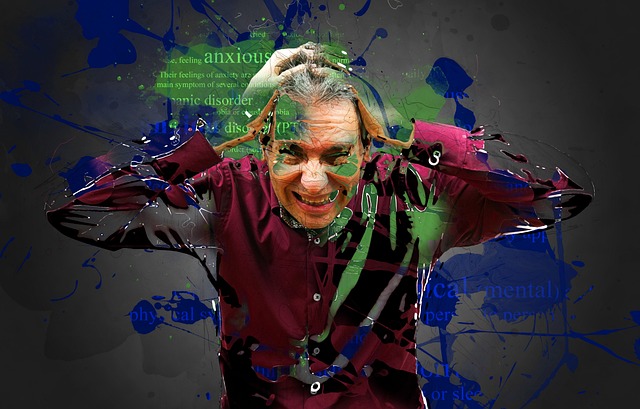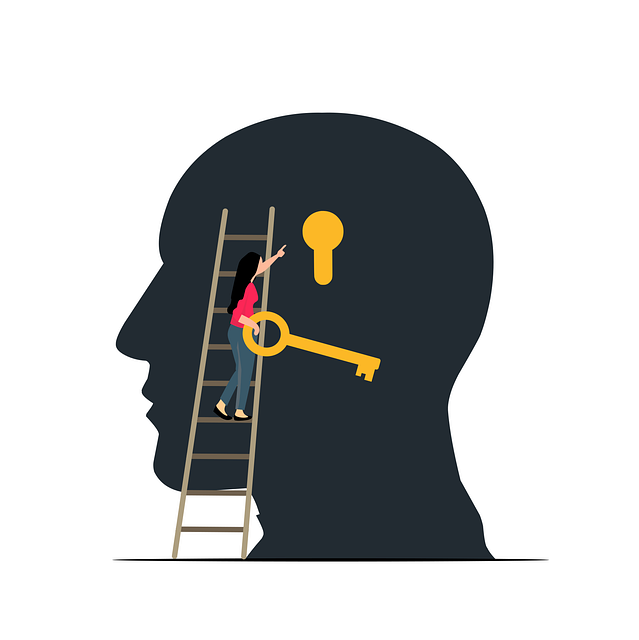Mental wellness group facilitation using evidence-based methods like Eye Movement Desensitization and Reprocessing (EMDR) offers a powerful, supportive environment for adults seeking trauma therapy. Combining open communication, peer support, and EMDR techniques enhances healing, promotes self-care, and improves mental health awareness. Group sessions facilitate sharing of coping strategies, foster a sense of belonging, and contribute to improved emotional well-being, making it an effective therapy for adults. Incorporating public awareness campaigns further reduces stigma and encourages early intervention. Effective communication and inclusive practices are vital for successful group facilitation, while active participation techniques create a supportive environment, encouraging peer support and personal growth through EMDR.
“Uncover powerful techniques for mental wellness group facilitation, a transformative approach to supporting adults on their healing journeys. This comprehensive guide explores strategies that empower facilitators to create safe, supportive environments. From EMDR (Eye Movement Desensitization and Reprocessing) technique overviews to communication strategies and participation enhancement, learn how to effectively navigate complex emotions. Discover adult-focused therapy approaches tailored for group settings, ensuring every member receives the support they need. Elevate your practice with these evidence-based methods, especially relevant in integrating EMDR for adult therapy.”
- Understanding Mental Wellness Group Facilitation
- EMDR (Eye Movement Desensitization and Reprocessing) Technique Overview
- Adult-Focused Therapy Approaches in Group Settings
- Effective Communication Strategies for Group Facilitators
- Enhancing Participation and Support within the Group
Understanding Mental Wellness Group Facilitation

Mental wellness group facilitation is a specialized approach to therapy that recognizes the power of collective support and shared experiences in fostering mental health recovery. It goes beyond individual therapy sessions, focusing on creating a safe and supportive environment where individuals can connect with others facing similar challenges. This therapeutic technique has gained prominence, especially in addressing complex issues like trauma using evidence-based methods such as Eye Movement Desensitization and Reprocessing (EMDR).
Group facilitation techniques not only enhance the process of healing but also promote self-care practices within the community. By bringing individuals together for group sessions, facilitators can encourage open communication, foster a sense of belonging, and improve mental health awareness. This collaborative approach is particularly beneficial for adults seeking therapy, as it provides a unique platform for peer support, education, and sharing coping strategies, ultimately contributing to improved emotional well-being.
EMDR (Eye Movement Desensitization and Reprocessing) Technique Overview

EMDR (Eye Movement Desensitization and Reprocessing) is a powerful therapy for adults that facilitates the resolution of traumatic memories or distressing life events. This technique has gained significant attention in mental health awareness circles due to its ability to help individuals process and heal from emotional trauma effectively. By focusing on specific aspects of a traumatic memory while engaging in bilateral stimulation, typically through side-to-side eye movements, EMDR helps desensitize the individual to the distressing event, reducing its emotional impact.
The process involves guiding the client to recall the traumatic experience while simultaneously performing the bilateral stimulation. This can be done through manual eye movements, or other forms of bilateral stimulation like tapping or auditory tones. As the memory is reprocessed, the associated emotions and beliefs are challenged, leading to a more adaptive understanding and coping skills development. Over time, this technique promotes self-esteem improvement and enhances overall mental wellness by reducing symptoms related to post-traumatic stress disorder (PTSD) and other trauma-related conditions.
Adult-Focused Therapy Approaches in Group Settings

In group settings, Adult-Focused Therapy Approaches like Eye Movement Desensitization and Reprocessing (EMDR) have proven to be highly effective for enhancing mental wellness. EMDR therapy facilitates the processing of traumatic memories and emotions, allowing individuals to work through past experiences that may be causing current distress. This approach encourages participants to share their stories within a safe, supportive environment, fostering a sense of community and understanding among group members.
Group facilitation techniques also play a crucial role in promoting Stress Management and Self-Esteem Improvement. Through guided discussions, interactive activities, and peer support, these sessions enable individuals to develop coping strategies for managing stress and boosting their self-worth. Moreover, Public Awareness Campaigns Development can be integrated into group therapy to foster open conversations about mental health, reducing stigma and encouraging early intervention and treatment seeking among adults.
Effective Communication Strategies for Group Facilitators

Effective communication is a cornerstone of successful group facilitation, especially when working with adults seeking therapy and healing. Group facilitators should adopt inclusive practices, ensuring every member feels heard and respected. Active listening, where the facilitator shows empathy and understanding while encouraging participants to share their experiences, fosters an open environment. This technique allows individuals to express their thoughts and emotions freely, a key aspect of EMDR (Eye Movement Desensitization and Reprocessing) therapy for adults.
Additionally, facilitators should employ clear and concise language, adhering to the Mind Over Matter principles by promoting positive self-talk and reframing negative thoughts. This is crucial during risk assessments for mental health professionals, as it helps individuals manage their anxiety relief and emotional responses in a group setting. Effective communication strategies also involve building rapport with participants, using humor appropriately, and demonstrating cultural sensitivity to create a safe and supportive atmosphere.
Enhancing Participation and Support within the Group

Encouraging active participation is key to fostering a supportive group environment for therapy for adults using EMDR (Eye Movement Desensitization and Reprocessing). Facilitators can employ various techniques to ensure every member feels heard and valued, enhancing the overall therapeutic experience. One effective method is incorporating interactive activities and discussions that engage participants in sharing their experiences and insights. For instance, starting sessions with a brief icebreaker or using mental wellness journaling exercises can prompt open dialogue and create a safe space for expression.
Additionally, group leaders should promote peer support by encouraging members to offer guidance and share their conflict resolution techniques. This collaborative approach not only strengthens the bonds among individuals but also empowers them with diverse coping strategies. By fostering a sense of community and resilience building within the group, facilitators can create an empowering atmosphere where mental wellness is prioritized, enabling participants to navigate challenges together and achieve personal growth through EMDR therapy.
Mental wellness group facilitation offers a powerful tool for adults seeking therapy and support. By employing techniques like EMDR, facilitators can create a safe and engaging environment that promotes healing. Understanding diverse therapeutic approaches, effective communication strategies, and ways to enhance participation ensures a dynamic and inclusive group experience. These methods not only empower individuals but also foster a sense of community, ultimately contributing to improved mental wellness.











